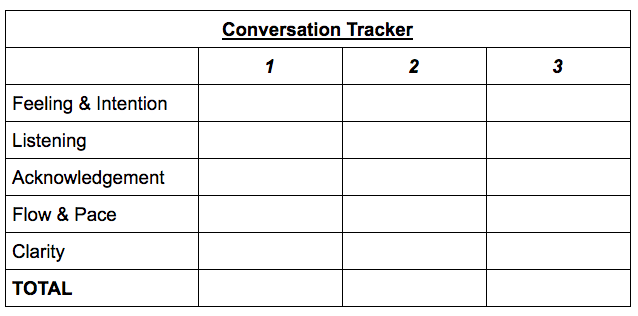4 KEY TIPS TO EFFECTIVELY COMMUNICATE YOUR INTENTIONS AND MANIFEST YOUR DREAMS
When talking to others, do you ever experience that they are not listening? Or even worse, perhaps you are talking and do not even notice that they are not listening. Nearly one third of all conversations lack effective talking and listening skills. The outcome of these types of conversations are obvious, little to nothing gets accomplished. Imagine what it would be like if every time you share your feelings, intentions and needs with others you achieved your intended outcome? What would that mean to your relationships, work and state of mind? There is power in soulful listening and talking!
The Two Types of Listening and Talking
We live in a dualistic world, subject/object, male/female, right/wrong, winners/losers, and so on. The same holds true for listening and talking. We can listen to what others are saying from two different sources. One source is the ego, which has two ears and listens to separate the thoughts from the one that is doing the talking from the one that is listening. The other source is the soul’s ear. This ear unifies the thoughts of what is being said and what is asking to be heard. Let me explain.
Monologue: The Voice of the Ego, a Master of Needs
The ego, the aspect of the self that functions separately from the soul, always seeks to divide your thoughts, feelings, and experiences from the Soul. Your soul Self seeks peace and love. It’s compassionate, kind, and forgiving. When we experience ourselves as a part of the whole and not the whole itself, we seek to find our identity, purpose, and meaning in the outer world. History has shown that this always leads to conflict, disease, unhappiness, and lack. When we communicate from a place of separation, we project these aspects of the ego into the world. This is the monologue that drones on and on about our lives and ignores that of the other person. The ego also listens from the same perspective.
The ego hears only what it wants to and dismisses everything else. When we judge anything we are engaging in separation looking for ways unconsciously to blame or attack others. We are currently living in an age of ego listening and talking. Selfishness, narcissism, self-indulgent behavior are all too common behaviors in today’s culture. The ego always speaks first and always the loudest. The ego’s style of speaking and listening can best be described as a monologue. How can you distinguish the difference?
Test yourself by being conscious of the words that you first hear and speak. If you do not hear and feel the words you speak first and talk unconsciously about yourself and your needs, then the ego has taken control. If your words lack compassion and kindness then your ego is doing the talking. If you feel the need to defend yourself and control the world in which you live, again, this is your ego.
Dialogue: The Voice of the Soul, a Master of Intent
What is the Soul? The soul, being abstract and non-specific does not come into the body or any other physical form. It is not born nor does it die. As such, the soul is eternal, immortal, and infinite. It does not exist in a time space reality, it does not die and it is interconnect with everything in the universe. You are not a body, mind, or spirit, you are a soul. The body does not house the soul, the soul houses the body.
In contrast to the ego voice, the soul speaks and listens from the heart. It communicates heart to heart and listens with empathy, compassion and kindness. This type of communication is not about dismissing someone else's behavior. It is quite the contrary. The soul listens and talks to allow all parties to share their thoughts, feels and needs. It not about finding an agreement about what is being said, it's about finding a common ground about what is being said. Once a common ground is located, two people can proceed to work through differences.
Common ground can only be found with another person when the parties speak to with each other and not at each other. The soul’s style of listening and talking can best be described as a dialogue, or an exchange of ideas, thoughts, feelings and needs.
Dialogue and monologue style are polar opposite of one another. The former seeks an outcome the supports understanding, whereas the latter seeks an outcome that supports conflict.
Four Tips to be a Better Listener
1. Quiet the Mind, Body and Brain
Keep your eye on the other person as much as possible even if they are not looking at you. Be conscious of your thoughts. What are you thinking while the other person is talking? Are you thinking about what you want to say when they are done talking? Can you put your needs and wants aside and listen deeply to what the other person wants to say? Often, they do not know how to say what they want to say. Give the other person room to share. Active listening means being less active in your hand, eye and body movement, as well as, with your thoughts and reactions.
2. Value the other person
Every person on earth has something of value to say. Even if you are completely disinterested in what they are saying you may be surprised at what they offer. Some of the best ideas come from being with the people you do not want to be with. At a minimum, they can teach you to discover something important about yourself. When we respect others by listening to what they have to say, we respect ourselves for what we have to say. “Do unto others as you would do unto yourself.”
3. Share your emotional tenor
When you began a conversation share the emotional nature of where you are at in that moment. I not feeling well, I am in a hurry, I have about 20 mins…. . If you do this before you engage in conversation, the other person knows your needs and can respect your wishes.
4. Know what outcome you want from the conversation
The intended outcome for both parties may not often be in alignment. The best technique for the listener is to be unattached to any outcome. That way the listener can hear what the talker needs on a deeper level and at the same time be satisfied with what he/she needs. The best default for the listener is to hear from the heart, gave the talker their due respect and be satisfied no matter what the outcome.
Four Tips to be a Better Talker
1. Talk in a flow
As with listening, talking requires pacing. When you get in a flow, it is alright to let yourself go as long as you are cognizant of the other person and are sure that they are listening. Pause to check in with the other person to see if they want to speak. The only chance of any success is to let the others speak. Pay attention to their flow, not just yours.
2. Be clear about your needs
The same as when you are listening and need to share the emotional tenor, the same holds true for talking. More specifically, share how much time you need and the intended outcome you would like from the conversation. I want to clear the air about what happened the other day. I want you to know what I have to offer and so on. Be clear, clean and connect with the listener.
3. Don’t take anything personally
It’s never about you. Don’t make it that way. One of the best ways to deal with emotions and deep-seated feelings can be to remind yourself to be aware of the need to perceive yourself as being unfairly treated. In other words, avoid becoming the victim, rescuer, or perpetrator. All humans beings have the need to project their thoughts, feelings, and needs upon others. If you take what they say personally, then you give up your power to choose the outcome that best serves you and the other.
4. Acknowledge the other person unconditionally
Before you began a conversation, whether you are the lead talker or listener, always acknowledge the other person. This can best be accomplished with a few words, a soft gentle look in the eye, a bow of your head or all of the above. When you acknowledge the other person it's a sign of mutual respect. Before you do anything, this makes them feel heard and seen. This can be especially effective if you have any kind of conflict with the other person in the past. This passive action should be done through out the conversation. When the conversation seems complete, make sure the other party feels complete by asking, “I am complete for now, how about you?”
“Must Do’s” for Talking or Listening
Ask Questions
2. Be grateful
3. Be detached from outcome
4.Forgive yourself. You are human
Exercise: How well do you score for effective Listening and Talking?
Each day, for the next seven days select three conversations that you have with another person and do the following. This applies to conversations by phone. If you are not having any conversations one day, listen and talk with Nature.
Select the conversation in advance. Determine the following prior to talking with the other person:
How am I feeling about myself and the other person?
How much time do you have to devote to the conversation?
What is the desired outcome for myself?
What is the desired outcome for the other person? Or what do I think they want?
Remind yourself to acknowledge the other person and respect their feelings
When you meet with another person and enter into the conversation, observe yourself and the other person.
Did you share your feelings and intentions from the outset?
Are you listening? Are they?
Are you acknowledging them throughout the conversation?
How is the flow and pacing of the conversation going?
Did the conversation end with clarity? Did each of you feel heard and understood?
After the conversation has been completed immediately rate on a scale of 1-5, how each of the 5 areas above went. 1 being not so good 5 being great.
How well did you do?
Rating Your Daily Conversations
20-25 Excellent. You are a great conversationalist. Health, Love, Peace and Money are yours for the asking
15-19 Good. You are skilled and soon to be a master of conversation and manifestation.
5-14 Poor. Practice the above exercise in every conversation.





